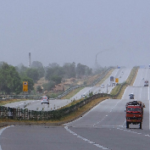The recent comments by Information and Broadcasting Minister Ashwini Vaishnaw have sparked a sense of optimism among India’s beleaguered digital news media sector.
For years, publishers in the digital space, particularly those with legacy news platforms, have been sounding the alarm about the monopolistic practices of Big Tech, especially Google and Meta, which have come to dominate the digital media landscape.
These companies, while profiting immensely from the content produced by Indian news organizations, have been criticized for failing to compensate them adequately. As a result, the very survival of credible digital news media in India has been called into question.
The Struggle of Indian Digital News Platforms
Indian digital news outlets face increasing pressure as they continue to invest heavily in maintaining editorial standards, journalistic integrity, and professional newsrooms. Yet, they often find themselves at the mercy of global tech giants that control the digital distribution channels, such as search engines and social media platforms.
The monopolistic practices of Google and Meta leave little room for meaningful negotiation or fair revenue-sharing agreements. Instead, news publishers are often left with a stark choice: accept unfavourable terms or risk becoming invisible in the highly competitive digital environment.
Global Pushback Against Big Tech’s Dominance
India is not alone in confronting the stranglehold of Big Tech over the digital media space. Governments across the world, including in Australia, Europe, the UK, Canada, and the United States, have taken steps to regulate these companies’ operations, particularly their impact on the news industry.
Investigations into anti-competitive practices have intensified globally, and several countries are now exploring legislative frameworks aimed at ensuring more equitable distribution of digital revenues.
In India, the Competition Commission of India (CCI) has also initiated probes into these practices, though a detailed report is still awaited. The dialogue on regulating Big Tech has only intensified in the last year and a half, with former Information Technology ministers calling for oversight.
Minister Vaishnaw’s recent remarks have been seen as a welcome recognition of the challenges faced by India’s digital news media and the need for urgent policy intervention.
Fake News and Algorithmic Bias
One of the most pressing concerns raised by digital news publishers is the spread of fake news, which is often amplified by the algorithms of search engines and social media platforms. Sensationalist, unverified content tends to receive far more visibility and engagement than credible journalism, posing serious risks not just to public discourse, but to the democratic fabric of the nation.
The increasing prevalence of misleading and factually incorrect information is becoming a major problem. Minister Vaishnaw has highlighted the dangers of allowing these platforms to operate without accountability. As news organizations struggle to keep up with algorithmic changes that prioritize sensationalism, the very essence of responsible journalism is threatened. The unchecked growth of disinformation further exacerbates this crisis, making it even harder for digital news outlets to sustain themselves.
AI and the Future of Journalism
The rapid rise of AI-driven platforms, such as ChatGPT and Gemini, has added a new layer of complexity to the media landscape. These technologies are now capable of generating content that could potentially substitute for traditional news reporting.
AI-generated content, often relying on global perspectives, is increasingly being used to disseminate information, but it may not always reflect the reality of local issues or the nuanced socio-political contexts of India.
This trend raises crucial questions about the impact of foreign-driven narratives on India’s domestic discourse. AI-driven platforms, with their Western-centric viewpoints, can inadvertently distort or oversimplify complex local stories.
Moreover, this trend could undermine the rationale behind Foreign Direct Investment (FDI) regulations in the Indian media sector, which were designed to protect the interests of local news outlets and preserve the diversity of Indian media.
A Call for Regulatory Action
Given these emerging challenges, Indian digital news media is looking towards the government for decisive action. There is a growing demand for clear regulations and enforceable guidelines that ensure fair compensation for content creators, while also safeguarding the industry from disruptive forces such as AI-driven platforms and algorithmic bias.
At the same time, there is a pressing need to address the imbalance in revenue-sharing models between tech giants and news publishers.
Now is the critical moment for the Indian government to step up and establish regulations that not only protect the financial interests of digital news publishers but also create a more level playing field in the digital media space.
Such measures could include establishing frameworks to govern AI technologies used in content dissemination and setting standards for transparency and accountability in algorithmic processes.
The Path Forward: Equity and Integrity
Minister Vaishnaw’s recent comments signal a significant shift towards acknowledging the existential threats posed by Big Tech to India’s digital news ecosystem. As the government considers regulatory reforms, it must ensure that both legacy news organizations and emerging digital platforms are treated fairly, with adequate protection for journalistic independence and the integrity of news content.
Establishing fair revenue-sharing models, along with clear guidelines on AI-generated content and algorithmic transparency, will help foster an environment where innovation can thrive without compromising journalistic values.
By supporting the local news ecosystem, the government has an opportunity to ensure the continued health of India’s democracy, which relies on an informed and engaged citizenry.
The need for timely and effective action is now more urgent than ever. Regulatory frameworks that prioritize fairness, equity, and transparency will not only protect India’s digital news media sector but will also serve to strengthen the very foundations of democratic governance.
Minister Vaishnaw’s words have set the stage for a transformative policy shift—one that could secure the future of credible journalism in India for generations to come.



